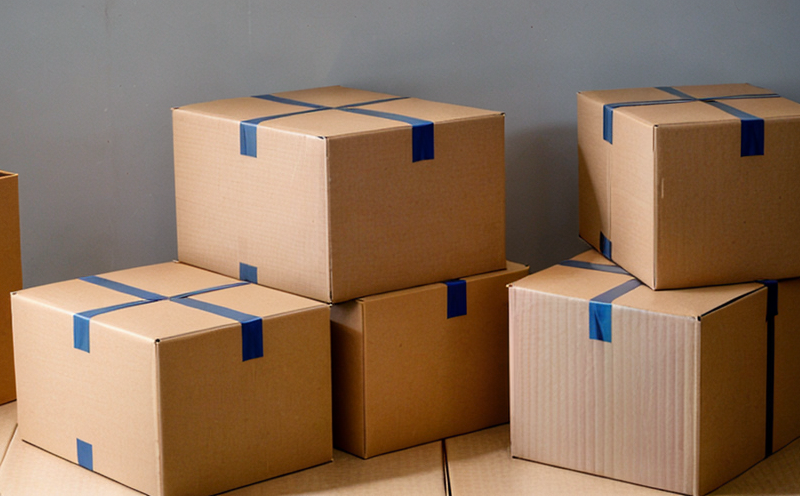ISO 51620 Mineral Oil Hydrocarbons Profiling in Recycled Cartons
The ISO 51620 standard provides a comprehensive framework to profile mineral oil hydrocarbons (MOHs) in recycled cartons. This service is crucial for ensuring the safety and integrity of food and feed products, particularly those that come into direct contact with packaging materials derived from recycled cartons.
The testing protocol outlined in ISO 51620 focuses on identifying and quantifying MOHs present in recycled carton materials. These hydrocarbons can be introduced during the recycling process or through the use of recycled paper products. The presence of MOHs is a concern because they may migrate into foodstuffs, posing potential risks to human health.
The testing involves several key steps:
- Sample preparation: The recycled cartons are cut and ground into fine particles suitable for extraction.
- Extraction process: A solvent is used to extract MOHs from the samples.
- Analysis: The extracted MOHs are analyzed using gas chromatography-mass spectrometry (GC-MS) or similar techniques to identify and quantify specific hydrocarbon compounds.
The results of this profiling help in assessing the safety of recycled cartons for use in packaging food and feed products. Compliance with ISO 51620 ensures that the recycled materials do not contain harmful levels of MOHs, thereby protecting consumer health.
Our laboratory employs state-of-the-art equipment and rigorous methodologies to ensure accurate and reliable results. The testing process is conducted according to the latest international standards, ensuring consistency and accuracy in our findings.
The importance of this service cannot be overstated, especially given the increasing demand for sustainable packaging materials. By profiling MOHs in recycled cartons, we provide critical insights that enable food and feed manufacturers to make informed decisions about their supply chain practices and product safety.
Our expertise in this area allows us to offer tailored solutions to our clients, helping them navigate the complexities of using recycled materials in packaging. We work closely with quality managers, compliance officers, R&D engineers, and procurement teams to ensure that every aspect of the testing process is aligned with their specific needs and objectives.
The results from this profiling can be used to:
- Ensure regulatory compliance
- Enhance product safety
- Support sustainable supply chain practices
- Reduce risk in food and feed packaging applications
In conclusion, ISO 51620 Mineral Oil Hydrocarbons Profiling in Recycled Cartons is a vital service that helps protect consumer health while promoting sustainability. Our laboratory's expertise in this area ensures that we provide accurate, reliable, and actionable results to our clients.
Industry Applications
The application of ISO 51620 Mineral Oil Hydrocarbons Profiling in Recycled Cartons is particularly relevant for the food and feed industry. This service ensures that recycled cartons used in packaging do not pose risks to the safety of the products they contain.
For quality managers, this testing helps in maintaining high standards of product safety by ensuring that MOH levels are within acceptable limits. Compliance officers benefit from this service as it aids in meeting regulatory requirements and avoiding potential legal issues.
R&D engineers can use the results of this profiling to innovate and develop safer packaging solutions. By understanding the MOH content in recycled cartons, they can design products that minimize health risks while still utilizing sustainable materials.
Procurement teams find value in this service by ensuring that their suppliers are delivering materials that meet stringent safety standards. This helps in building a reliable supply chain and maintaining brand reputation.
The testing process is particularly important for companies involved in:
- Recycled paperboard manufacturing
- Food packaging design and production
- Feed additive formulation
- Sustainability initiatives related to packaging materials
In summary, ISO 51620 Mineral Oil Hydrocarbons Profiling in Recycled Cartons is a critical service that supports the food and feed industry's commitment to safety, sustainability, and regulatory compliance.
Quality and Reliability Assurance
The testing of mineral oil hydrocarbons (MOHs) in recycled cartons must be conducted with precision to ensure reliable results. The following are key aspects that contribute to the quality and reliability of our testing process:
- Sample preparation: Rigorous procedures are followed to prepare samples for extraction, ensuring accurate representation of the material.
- Extraction methods: Advanced solvents and techniques are used to extract MOHs from the recycled cartons, minimizing contamination.
- Instrumentation: High-quality analytical instruments such as GC-MS ensure precise measurement and identification of hydrocarbons.
- Data analysis: Expert analysts use sophisticated software to interpret the data obtained from the tests, providing accurate results.
The reliability of our testing is further enhanced by:
- Regular calibration of equipment
- Use of standard reference materials for validation
- Inter-laboratory comparisons to ensure consistency across multiple facilities
- Detailed documentation of all test procedures and results
We adhere strictly to international standards, such as ISO 51620, which provides a robust framework for this testing. Our commitment to quality is reflected in our consistently accurate and reliable results.
Environmental and Sustainability Contributions
The use of recycled cartons in food and feed packaging has significant environmental benefits. By profiling mineral oil hydrocarbons (MOHs) in these materials, we contribute to the sustainability efforts of our clients:
Reducing waste: Recycling cartons helps divert waste from landfills, promoting a circular economy.
Sustainable sourcing: Ensuring that MOH levels are within acceptable limits supports responsible sourcing practices and reduces environmental impact.
Energy efficiency: The recycling process generally consumes less energy than producing new materials, contributing to lower carbon footprints.
Biodiversity conservation: By reducing waste and promoting recycling, we support efforts to protect natural habitats and ecosystems.
The testing of MOHs in recycled cartons also supports the development of safer packaging solutions that are both sustainable and compliant with regulatory requirements. This aligns with broader sustainability goals and helps our clients meet their environmental commitments.





